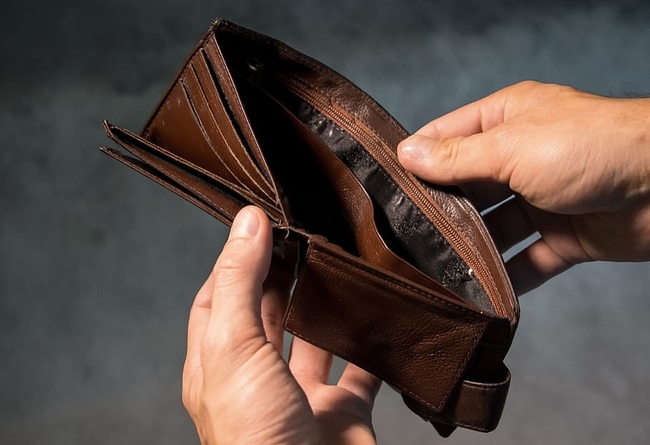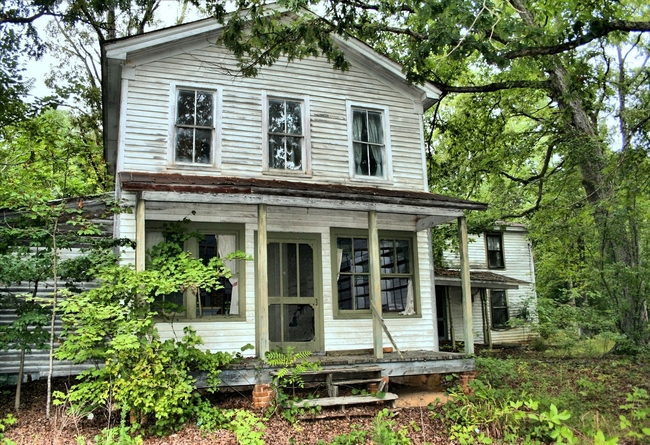
There’s No Shame in Owning Distressed Property
When you hear the term “distressed property”, it might carry a negative connotation. However, there are several types of distressed properties with various factors, some invisible and some visible, that can explain the property’s current state and lack of upkeep. In many cases, the reason for your property’s distressed condition is something others are likely experiencing too.
Distressed property or those at risk of becoming one are common, and owning one doesn’t mean you have to be prepared to lose face. In fact, these are highly sought-after properties that can offer a unique opportunity to interested buyers and can be fixed or flipped to be transformed into desirable homes and real estate.
Here’s why there’s no shame in owning a distressed property and what you can do with yours.
What is a Distressed Property?
It’s can be useful to understand how different types of distressed properties are defined and how. This helps eliminate or lessen any feelings of discomfort or embarrassment around owning such property.
The term distressed property encompasses multiple definitions. The most common use for the term is to describe a property that lacks upkeep or one in which the owners are under financial stress, having missed property tax or mortgage payments. For a bank or lender, a distressed property is generally a home facing foreclosure or one with a tax lien. Health inspectors will identify a house with code issues as distressed.
No matter what, it’s not uncommon in Central Florida and across the country for individuals to possess a distressed property and need to sell their property quickly.

What Causes Distressed Properties?
Several events can cause a property to become distressed. When a property owner falls on hard financial times, it can become increasingly challenging to make mortgage payments, pay for repairs, or afford general upkeep. Losing a job, going through a divorce, and enduring a host of other financial and legal hardships can contribute to a property falling into disrepair or becoming distressed.
After the property becomes distressed, a homeowner may face legal consequences if they cannot pay their lenders quickly, including:
- Facing foreclosure
- Bankruptcy
- Liens and judgements
- Owed property taxes
- Code violations
- Home in probate
Regardless, it’s common for people facing this to keep their money troubles to themselves or to feel humiliated. Some homeowners may try to fight foreclosure or try to put what money they have available into their distressed property. They’re often ashamed to foreclose or fearful about the consequences of foreclosing.
There is no indignity in cutting your financial losses and walking away from your distressed property. There are options outside of foreclosure available to owners of distressed properties, including modifications, selling as-is, and short sales.
What are the Types of Distressed Properties and How are They Sold?
If you own a distressed property, several selling options are available to you that will enable you to pay off your debt and escape foreclosure. There are three main types of distressed property sales, each of which requires a unique selling process.
- Short sale: When a homeowner falls behind on their mortgage payments, they may want to consider a short sale. A short sale is when a house sells for less than the amount owed on the mortgage and typically happens during the pre-foreclosure stage. Once the lender approves the short sale, the homeowner will receive a Notice of Default from the lender. If they can’t pay the total owed mortgage within a given timeframe (usually three months), they may be able to make an agreement with the lender. If no funds are available, a short sale may be the best course of action to avoid foreclosure.
- Real estate owned: When a homeowner fails to make mortgage payments, the lender will issue a Notice of Sale, which commences the foreclosure process. Once the foreclosure is final, the lender becomes the owner and the distressed property becomes Real Estate Owned or REO.
- Abandoned or vacant property: If an owner has abandoned or left a property vacant, the property is then considered a distressed property.
What You Can Do With Your Distressed Property
If you are the owner of a distressed property or you’re unable to pay the mortgage, pay for repairs, or facing some other type of legal or financial issues, you may want to sell your property to avoid legal problems.
You can get rid of your distressed property with relative ease in one of three ways.
- Work with a real estate agent: You can hire a real estate agent to help you sell your home. The real estate agent will do all the work necessary to sell your home. This may allow you to sell it for a higher price than you could on your own. However, it could take awhile to find a buyer willing to buy it at the right price, and many real estate agents take a commission.
- Sell on your own: Instead of hiring a realtor, you can go solo and sell the property yourself. If you’re willing to do the work yourself, it might be tempting to avoid paying your real estate agent’s commission. However, “for sale by owner” can be a tedious and taxing process if you don’t know all the selling techniques.
- Sell to a cash buyer: Selling to a cash buyer is a fantastic option for selling distressed property. At Meli Homes, you’ll close in less than 30 days, and we can purchase your home with cash upfront. We’ll also cover all closing fees, so you get as much from the sale as possible.
No matter which selling route you choose, it’s important to remember that plenty of fellow homeowners are in the same boat as you, with various types of distressed properties. It’s okay to cut ties with your distressed property in the way that works best for you, financially or emotionally.

Learn More Today
If you own a distressed home or property within Central Florida and you’re ready to sell, Meli Homes can help. Send us a message through our contact form today! We’ll get back to you within 24 hours to set up a plan for your home.
This article is meant for informational purposes only and is not intended to be construed as financial, tax, legal, real estate, insurance, or investment advice. Meli encourages you to reach out to an advisor regarding your own situation. Please consult with your advisor when making legal or financial decisions.
Image Credits
https://pixabay.com/photos/house-abandoned-vacant-vintage-54570/
https://p1.pxfuel.com/preview/891/97/287/purse-wallet-money-finances-waist-bags-pay.jpg
https://pixabay.com/photos/people-emotion-dramatic-female-1492052/
